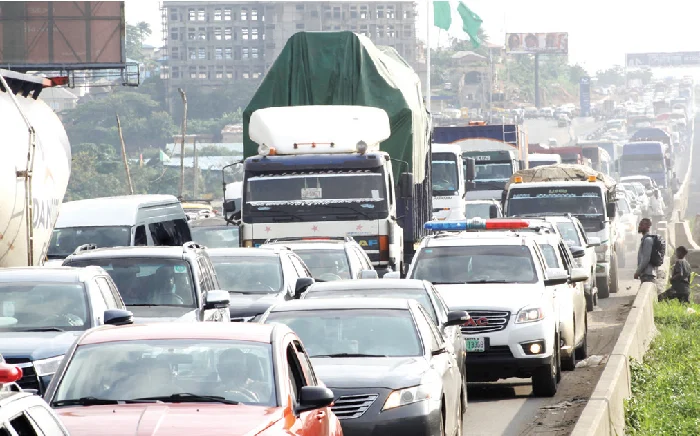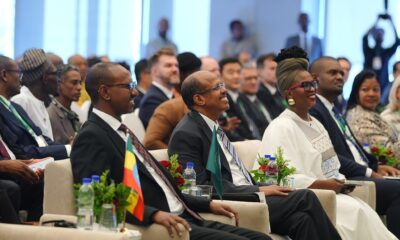Breaking News
REVEALED: Average Lagosian spends 57% working hrs in traffic, 28% income on transport – Yabatech don
He attributed the issue to the fact that the majority of the workers were forced out of Central Lagos, which is home to the majority of the companies where they are employed.

Approximately 57% of a Lagos resident’s working hours are spent traveling to work, and 28% of their income is allocated to transportation, according to Dr. John Okesoto, a Chief Lecturer at the Yaba College of Technology, Yabatech.
This was said by Okesoto of the Department of Regional and Urban Planning during her presentation of “Lagos: The Poor, the Pot, and the Bed,” which was the 15th Inaugural Lecture Series 2024.
He attributed the issue to the fact that the majority of the workers were forced out of Central Lagos, which is home to the majority of the companies where they are employed.
While explaining what the title of the lecture stands for, Okesoto noted that the poor stands for the worker, the pot is for the place of work and the bed, is the place where the worker lives.
“Low-income earners are gradually displaced from inner cities. The rich lived closer to the city centre and the poor dispersed to the fringes. The poor now spend more money to get to the city centre to earn a living. This violates the principle of sustainable development. The housing-job relationship must be addressed.
“In the pre-colonial era, the poor lived in the inner city and the rich in the outskirts. However, with the advent of colonialism, the reverse was the case and segregation continued in the post-colonial era with the development of Government Reserved Areas, GRAs,” he said.
Okesoto added that the predicament of the low-income working class was in deciding where to live within the city of Lagos, most especially in the inner cities, which comprise Ikoyi, Obalende, Lekki and Victoria Island.
“The purpose of the lecture is to clarify the housing inclusion of the working poor, exploring the advantages of doing so and providing a course into the future housing location choice of the working poor, ensuring that the low-income earners live close to where they work, often called the inner city.
“Low-income working class in the city of Lagos is limited in the choice of where to live; for economic reasons, they live far away from their workplaces. They cannot participate effectively in the housing market in the inner city of central Lagos where their workplaces exist, where the market is mostly made up of luxurious housing units, costing 40% more than what is obtained in other parts of the city.
“Those that effectively participate in this market are those whose mean income is far higher than that of the low-income workers. The poor for this reason are therefore restricted to the suburbs where they will have to travel for several hours; commuting costs to access their work places daily are at cut throat rates. This suggests that the inner city housing market is exclusionary to low-income workers.
“It therefore becomes necessary that something must be done to make the working poor live closer to where they work (make the poor sleep closer to where their pot is). The two ways of doing this are to, either take the working poor to the inner city (a place not too far but close to where they work) or take the poor to where their bed is located, which is the urban fringe.
“The best way to do this is to allow for the poor to also live in the inner city through deliberate zoning, where the poor workers are made to live side by side with the rich through inclusionary housing. Another way to ensure that low-income workers live close to where they work is that all governmental and non-governmental establishments, with more than 99 staffers should be mandated to make provision for staff quarters.”
The Rector, Dr Ibrahim Abdul, described the inaugural lecturer as a proud product of the institution.
He said the college would not relent in the pursuit of excellence.










